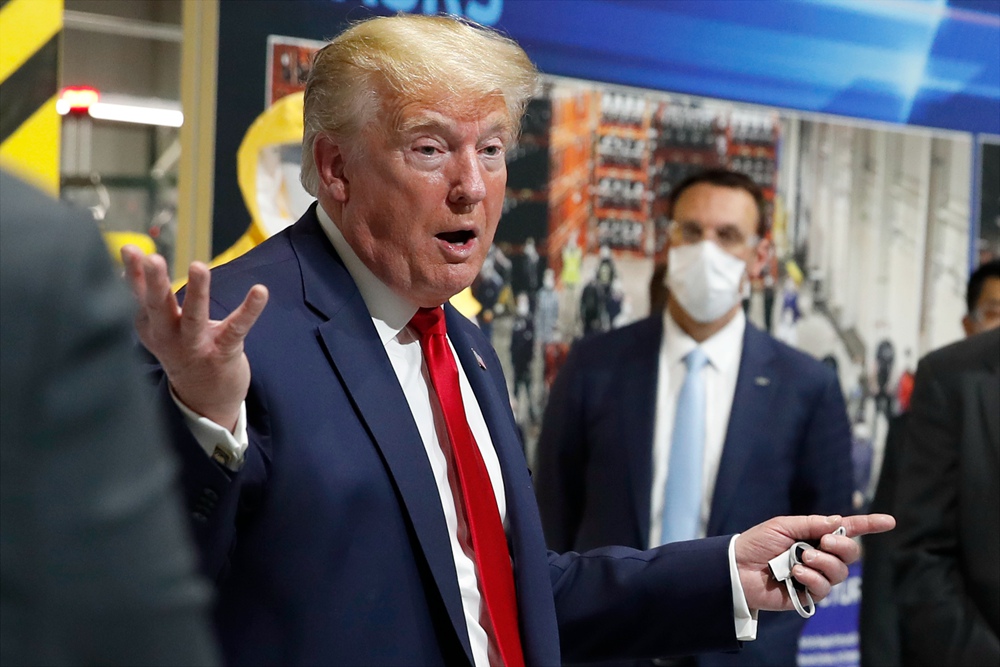
Chinese Vice Foreign Minister Le Yucheng speaks at a dialogue on China-U.S. relations via videolink, July 8, 2020. /Chinese Foreign Ministry
Chinese Vice Foreign Minister Le Yucheng speaks at a dialogue on China-U.S. relations via videolink, July 8, 2020. /Chinese Foreign Ministry
Chinese Vice Foreign Minister Le Yucheng said on Wednesday that the United States does not allow other countries to be better and more competitive than itself, despite paying lip service to the spirit of the market and fair competition.
Le made the remarks when attending a dialogue on China-U.S. relations via videolink. The event was co-hosted by the Chinese People's Institute of Foreign Affairs and American think tank Asia Society.
He underscored China's contributions to the world in the process of its rapid development, noting that the country contributes over 30 percent of annual global growth and over 70 percent to world poverty reduction.
However, the U.S. not only refuses to recognize China's excellent performance, but also spares no efforts in suppressing China, he said, adding that the U.S. is even becoming more and more hysterical in the fields of culture and people-to-people exchanges.
Washington monitors Chinese scholars, expels Chinese journalists, arrests Chinese students and closes Confucius Institutes in the U.S., the diplomat said, warning of a return of McCarthyism.
Read more:
China defends its countermeasure to U.S. restrictions on Chinese media, 'all options are on the table for China'
Is McCarthyism making a comeback in the U.S.?
"China-U.S. relations, which matter greatly to the future of the two countries and mankind, should not be hijacked by extremists," Le said. "We should not allow them to bring China-U.S. relations to a dead end."

U.S. President Donald Trump holds a face mask in his left hand as he speaks during a tour of Ford's Rawsonville Components Plant that has been converted to making personal protection and medical equipment, in Ypsilanti, U.S., May 21, 2020. /AP
U.S. President Donald Trump holds a face mask in his left hand as he speaks during a tour of Ford's Rawsonville Components Plant that has been converted to making personal protection and medical equipment, in Ypsilanti, U.S., May 21, 2020. /AP
Relations between the world's largest and second largest economies have worsened over trade disputes and the COVID-19 pandemic. Some U.S. politicians have blamed Beijing for the spread of the coronavirus, while Beijing has slammed Washington for blame-shifting.
Still, the United States has been critical of China's handling of issues concerning Xinjiang, Tibet, Hong Kong and Taiwan. Beijing has repeatedly warned Washington against meddling in its internal affairs.
Read more:
Beijing opposes Trump's stigmatization of COVID-19 as 'Kung flu'
China strongly opposes the U.S. 'Hong Kong Autonomy Act'
Le also criticized the U.S. for attempting to create a "parallel system" without China's involvement, stressing that multilateralism and globalization are inevitable trends in the world and that interests of different countries are closely interwoven.
U.S. attempts to build small groups targeting China and forcing other countries to take sides are opposed by many countries and doomed to fail, he noted.
"With friends all over the world, China cannot be isolated; with a population of 1.4 billion, the Chinese market cannot be boycotted," he said.
The U.S. is trying hard to persuade many European countries not to use products of Chinese technology giant Huawei in their 5G networks.
"The real enemy of the U.S. is not China, but the invisible virus and an increasing number of non-traditional security challenges," said Le.
The number of COVID-19 cases in the U.S. is close to three million, and the death toll has surpassed 131,000.
Le urged the U.S. to make joint efforts with China and the rest of the world in fighting the virus, a common enemy of all countries.